Boost Your Insulation Bids – Request a Precision Estimate!
- Accurancy
- Efficiency
- Transparency
- Customization
- Time Saving
- Professionalism
- Cost Control
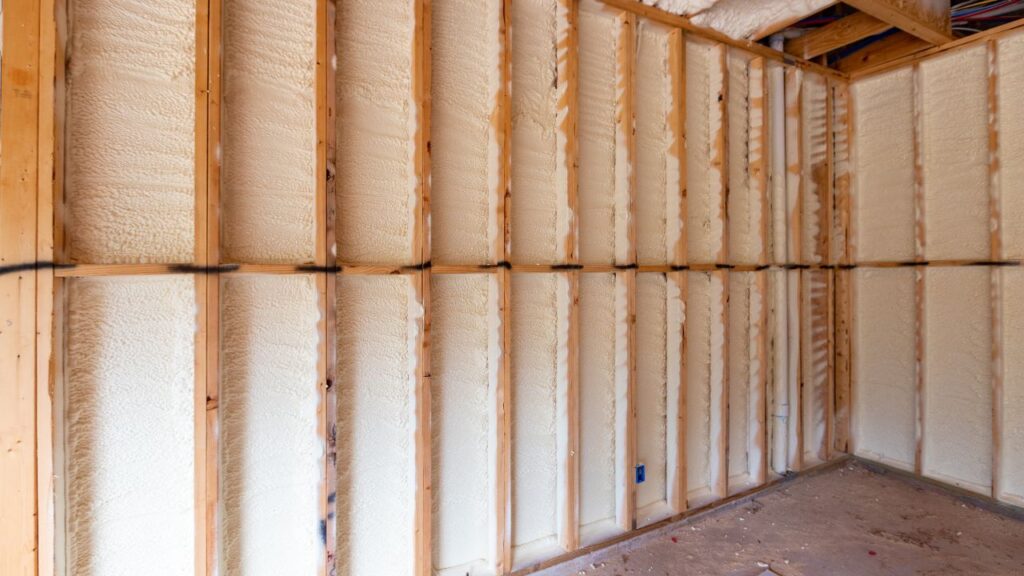
When it comes to insulating your 2000 sq ft home, the costs can range quite a bit, typically between $5,000 to $12,000, or about $2.50 to $6.00 per square foot. At Estimate Florida Consulting, we’re here to help you navigate these figures. We offer personalized cost analyses, tailored to the unique characteristics of your home and your specific insulation needs. Our aim is to provide you with a clear, detailed estimate, so you can make a decision that’s both financially sound and beneficial for your home’s comfort and efficiency.
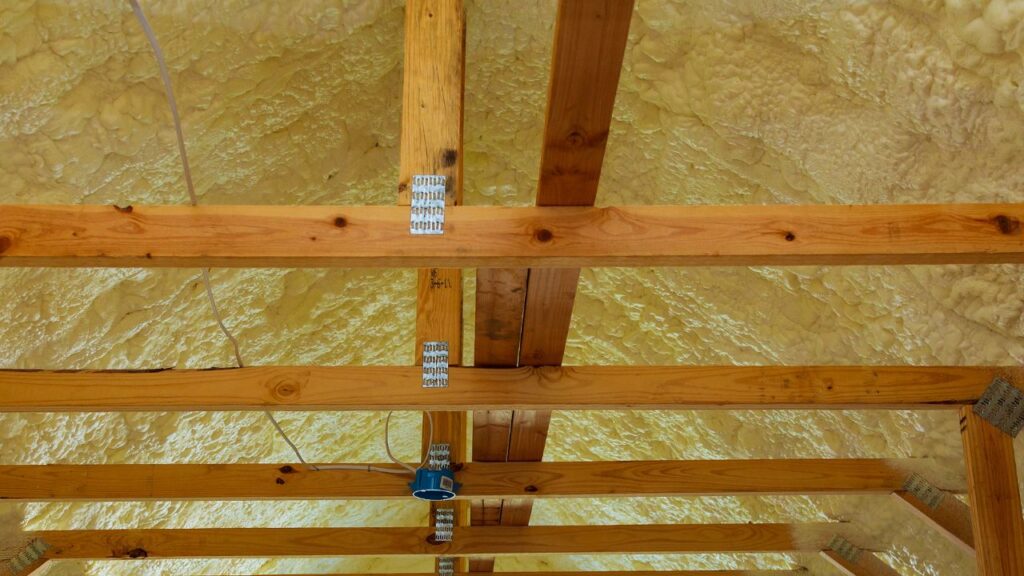
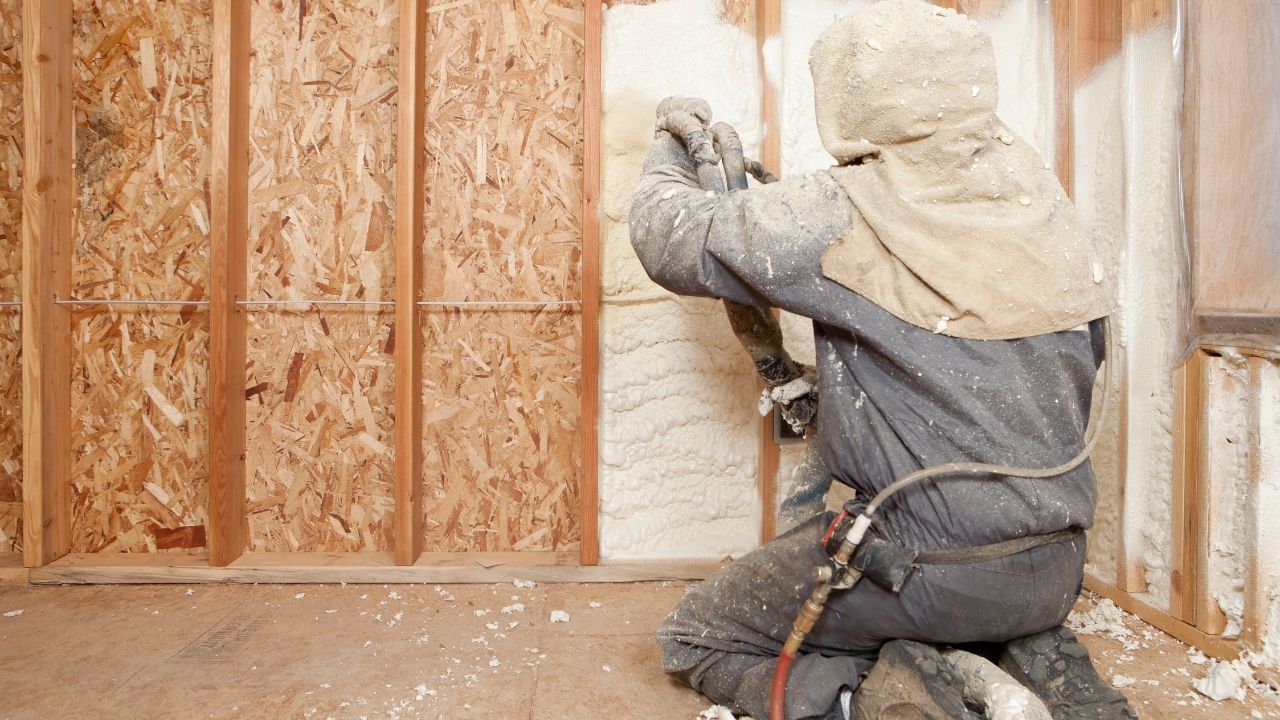
Fully Insured Licensed Hire a Builder For Insulation
Hire Contractor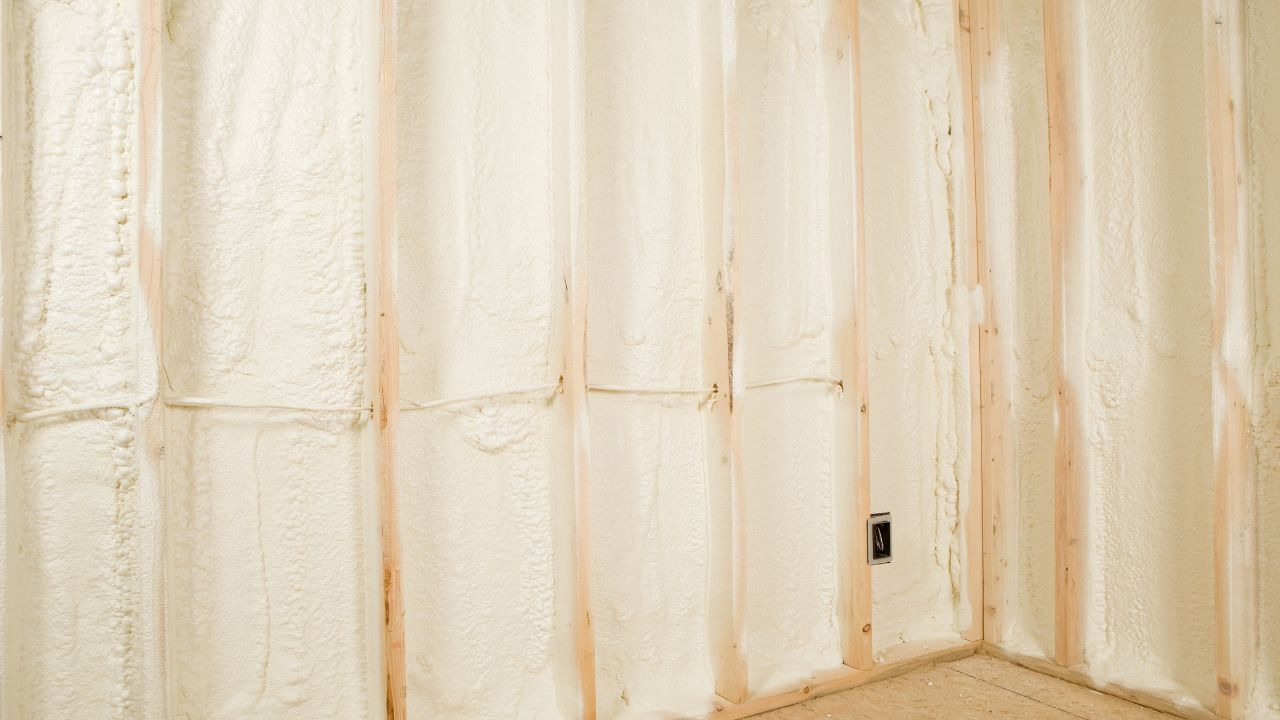
Make Informed Design Decisions Showcase Your Design Ideas
Get RenderingHouse insulation refers to the materials and techniques used to thermally insulate a residential property, such as an attic, walls, floors, windows, and doors, to improve energy efficiency and comfort levels.
By effectively insulating these areas, homeowners can reduce the heat transfer between the interior and exterior of the house, leading to lower energy consumption for heating and cooling. Attic insulation, for instance, plays a key role in preventing heat loss through the roof, while wall insulation helps maintain a consistent indoor temperature. Properly insulated floors and windows also contribute to maintaining a comfortable living environment by minimizing drafts and cold spots.
The benefits of a well-insulated home include lower utility bills, reduced environmental impact, improved indoor air quality, and enhanced overall comfort for the residents.
Insulation Type | Price Range per Sq. Ft. | Cost to Insulate a 2,000 sq ft House |
Foam Insulation | $5.40 – $10.80 | $10,800 – $21,600 |
Fiberglass Insulation | $1.80 – $5.40 | $3,600 – $10,800 |
Cellulose Insulation | $2.16 – $6.30 | $4,320 – $12,600 |
Rigid Foam Insulation | $6.00 – $12.00 | $12,000 – $24,000 |
Reflective Insulation | $3.50 – $5.50 | $7,000 – $11,000 |
Foam insulation, known for its high R-value and excellent thermal performance, is a top choice for homeowners seeking superior energy efficiency. It effectively seals gaps and cracks, minimizing air leakage and enhancing indoor comfort. With a price range of $5.40 to $10.80 per square foot, the cost to insulate a 2,000 square foot house with foam insulation ranges from $10,800 to $21,600. Despite its higher upfront cost compared to other insulation types, foam insulation offers long-term energy savings and a significant return on investment.
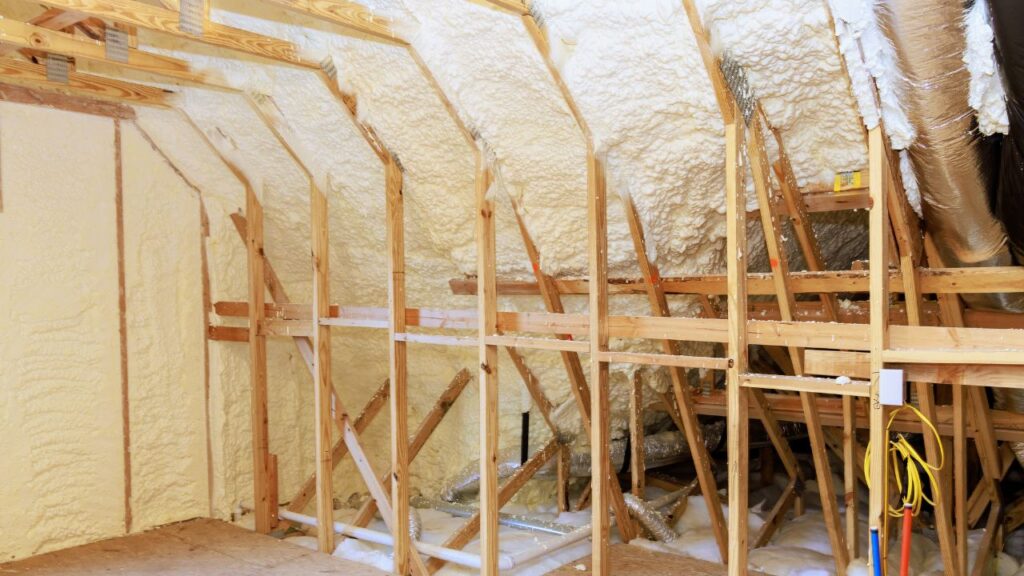
Fiberglass insulation is a cost-effective solution for insulating homes, offering good thermal insulation properties and versatility in application. It is commonly installed in walls, ceilings, and attics to help regulate indoor temperatures and reduce energy consumption. With a price range of $1.80 to $5.40 per square foot, the cost to insulate a 2,000 square foot house with fiberglass insulation ranges from $3,600 to $10,800. While fiberglass insulation may require professional installation for optimal performance, its affordability makes it a popular choice among homeowners.
Cellulose insulation, made from recycled paper fibers, is an environmentally friendly option for homeowners concerned about sustainability. It offers good thermal performance and is often used in attics and walls to improve energy efficiency. With a price range of $2.16 to $6.30 per square foot, the cost to insulate a 2,000 square foot house with cellulose insulation ranges from $4,320 to $12,600. Despite its slightly higher cost compared to fiberglass, cellulose insulation provides excellent soundproofing properties and can help create a more comfortable indoor environment.

Rigid foam insulation is a durable and moisture-resistant option suitable for insulating foundations, floors, and other areas requiring rigid support. It offers superior thermal resistance and helps prevent heat transfer, reducing energy loss and improving indoor comfort. With a price range of $6.00 to $12.00 per square foot, the cost to insulate a 2,000 square foot house with rigid foam insulation ranges from $12,000 to $24,000. While rigid foam insulation may have a higher upfront cost, its durability and long lifespan make it a worthwhile investment for homeowners looking for lasting insulation solutions.
Reflective insulation, commonly used in radiant barriers, helps reduce heat transfer by reflecting radiant heat away from the home. It is often installed in attics and roofs to maintain indoor temperatures and improve energy efficiency. With a price range of $3.50 to $5.50 per square foot, the cost to insulate a 2,000 square foot house with reflective insulation ranges from $7,000 to $11,000. While reflective insulation may have a lower upfront cost compared to other insulation types, its effectiveness in reducing radiant heat gain can lead to significant energy savings over time.
When you’re looking at insulating a 2,000 sq ft house, the costs can vary, but on average, you’re looking at a range of $5,000 to $12,000. This estimate typically breaks down to about $2.50 to $6.00 per square foot. The final cost can depend on various factors like the type of insulation you choose, the specific areas of your home you’re insulating, and regional labor costs.
Several factors impact the cost of insulation for a house, including the size of the house, region, types of insulation chosen, and the complexity of the installation process.
The size of a house plays a significant role in determining insulation costs, as larger homes generally require more insulation material and labor for installation.
Geographic location also influences pricing, with areas experiencing extreme temperatures often necessitating higher quality insulation to maintain energy efficiency.
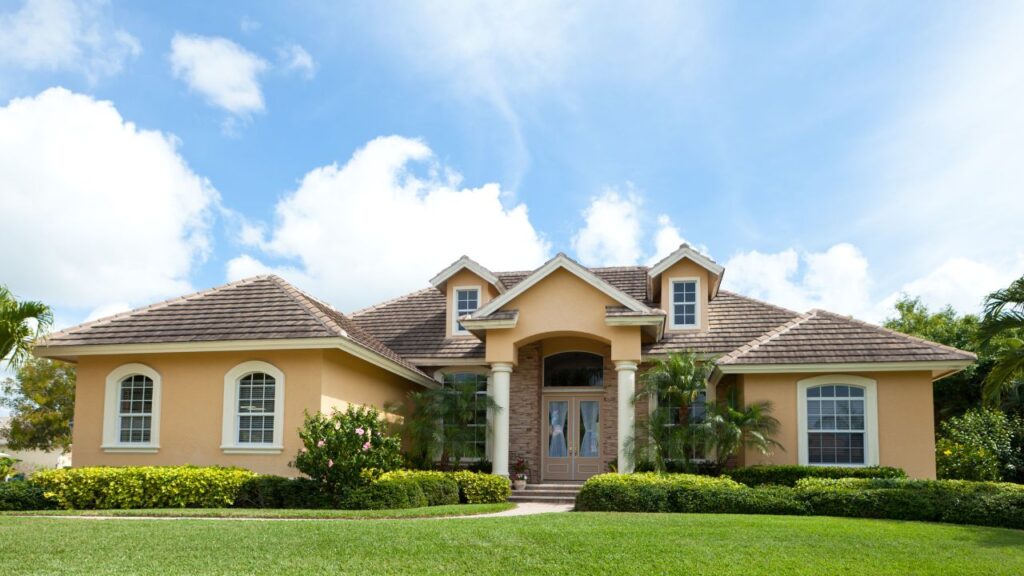
The types of insulation selected, such as fiberglass, spray foam, or cellulose, can vary in cost and effectiveness.
The complexity of the installation process, such as hard-to-reach areas or intricate designs, can impact overall pricing due to increased labor and time requirements.
The average cost to insulate a 2,000 sq ft house typically falls between $5,000 to $12,000. This equates to around $2.50 to $6.00 per square foot. These figures can vary based on the insulation material chosen, the complexity of installation, and regional labor rates.
Benefits of Insulating a House | Cost Details |
Energy Savings | Average savings of $500-$2000 per year |
Improved Comfort | Cost of insulation: $1.00 – $3.00 per sq ft |
Reduced Noise | Installation cost: $500 – $1500 |
Increased Home Value | ROI of up to 80% on insulation investment |
From small to large projects, residential to commercial, we’re here to help you win. Fast results guaranteed.
Insulating a house can lead to significant energy savings, with homeowners typically seeing average savings ranging from $500 to $2000 per year on their utility bills. Proper insulation helps in maintaining a consistent indoor temperature, reducing the need for excessive heating or cooling. Additionally, by creating a thermal barrier, insulation traps heat during colder months and keeps the interior cool during hot seasons, thereby lessening the workload on heating and cooling systems. This not only saves money by cutting down on energy usage but also contributes to a more sustainable environment by reducing carbon emissions associated with energy consumption.
Insulation costs typically range from $1.00 to $3.00 per square foot. Investing in insulation not only enhances energy efficiency but also improves overall comfort levels by regulating indoor temperatures and reducing drafts and cold spots. By sealing gaps and cracks, insulation prevents outside pollutants and allergens from entering the home, thereby creating a healthier environment for its inhabitants. Moreover, insulation helps maintain a consistent indoor temperature throughout different seasons, ensuring a comfortable living space year-round.
The installation cost for insulation varies but typically falls between $500 and $1500. Insulating materials help reduce noise transmission from outside sources and between rooms, providing a quieter and more peaceful indoor environment. By soundproofing windows with double or triple-pane glass, weatherstripping doors to minimize air gaps, and using materials like fiberglass, cellulose, or foam for wall and attic insulation, homeowners can create a quieter and more peaceful indoor environment. This noise reduction advantage of house insulation is especially crucial in urban areas where external disturbances can disrupt one’s relaxation and sleep.
Insulation offers a high return on investment (ROI), with homeowners often realizing up to 80% ROI on their insulation investment. Beyond energy savings and comfort improvements, a well-insulated home demonstrates a commitment to sustainability and can increase the property’s resale value. By creating a well-insulated environment, residents can enjoy a consistent and comfortable living space year-round, irrespective of external weather conditions.
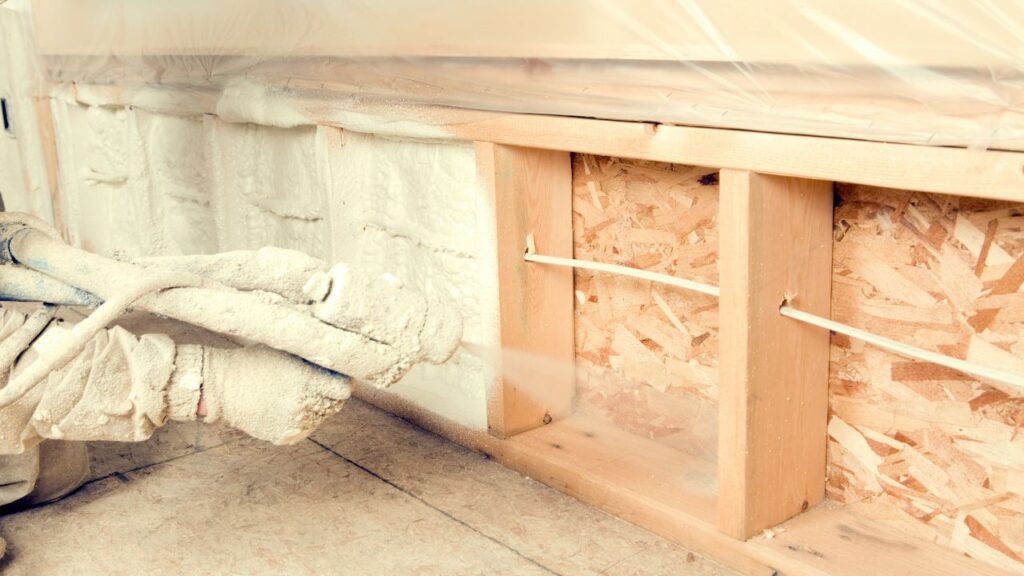
Investing in quality insulation materials demonstrates a homeowner’s forward-thinking approach, aligning with the growing demand for eco-friendly properties in the real estate market. This increased home value not only benefits current occupants but also enhances the resale potential of the property in the future.
Identifying signs such as high energy bills, uneven temperatures, drafts, air leaks, moisture issues, or mold growth can indicate that your house may require additional insulation to address heat loss, cold spots, and comfort issues.
If you notice that your heating or cooling system runs constantly to maintain a comfortable temperature, this could be a red flag for inadequate insulation.
Another common symptom is feeling distinct temperature variations in different areas of your home, leading to discomfort and the presence of cold spots.
Moisture-related problems like condensation on windows or walls, or the development of mold, often signal a need for improved insulation to prevent potential damage and health risks.
Unusually high energy bills can be a sign of poor insulation in a house, as heat loss and inefficient temperature regulation lead to increased energy consumption and elevated heating or cooling costs.
Improving insulation is a key strategy to combat these issues, as it helps maintain a consistent indoor temperature and reduces the workload on heating and cooling systems. By enhancing insulation levels in walls, attics, and windows, homeowners can create a more energy-efficient environment that requires less energy to heat or cool. This proactive approach not only lowers ongoing utility expenses but also enhances the overall comfort and sustainability of the living space. Opting for energy-efficient insulation materials such as spray foam or cellulose can further amplify the cost-saving benefits in the long run.
Experiencing uneven temperatures across different rooms or areas of a house can indicate inadequate insulation, as temperature differentials result from heat loss, poor insulation, or ineffective temperature regulation.
This inconsistency in temperatures can lead to discomfort and energy inefficiency. Insulation plays a crucial role in maintaining a consistent indoor temperature by preventing heat transfer through walls, ceilings, and floors. By enhancing insulation levels in key areas, such as attics, walls, and windows, homeowners can create a more thermally balanced environment. Upgrading insulation materials, like fiberglass, cellulose, or spray foam, can significantly improve the overall energy efficiency and comfort of a home. Properly insulated spaces can help reduce heating and cooling costs while promoting a more comfortable living environment.
Detecting drafts or air leaks around windows, doors, or other openings in a house signifies potential insulation issues that compromise energy efficiency, comfort levels, and indoor air quality, necessitating maintenance or insulation upgrades.
This may lead to temperature inconsistencies within the living spaces, as heat can easily escape during colder months and enter during warmer seasons, increasing the load on heating and cooling systems.
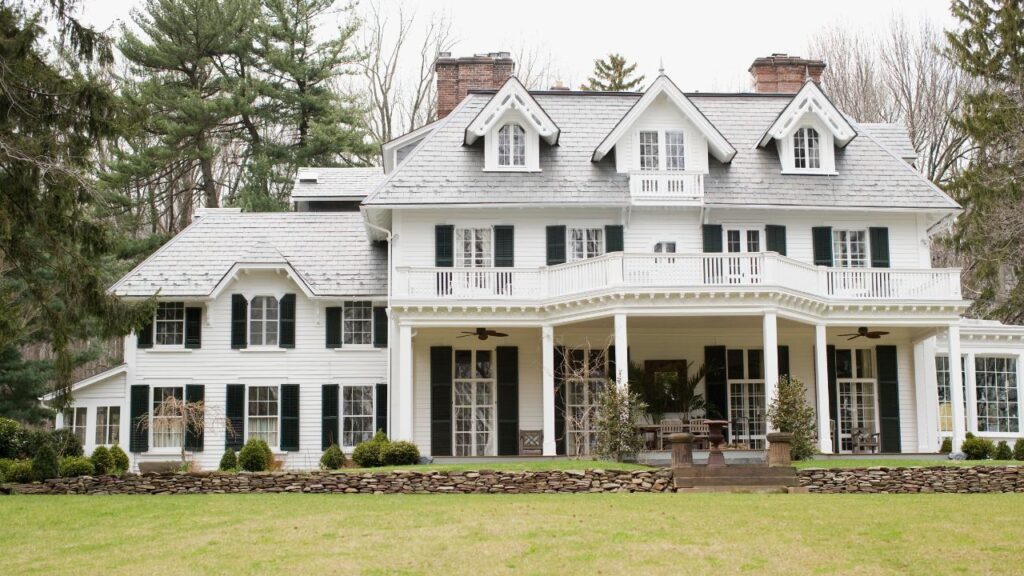
Common sources of air infiltration include gaps in weatherstripping, poorly sealed windows, cracks in walls or foundations, and unsealed electrical outlets.
Addressing leaks through regular maintenance tasks, such as reapplying caulking or weatherstripping, and investing in proper insulation materials like foam boards or blown-in insulation can significantly improve the overall energy performance of a home, reducing utility costs and enhancing occupant comfort.
Moisture accumulation or mold growth in a house can signal insufficient insulation, poor ventilation, or moisture infiltration problems that require immediate attention, including insulation upgrades to prevent further issues.
When moisture is not managed properly within a home, it can lead to the creation of a damp environment that fosters the growth of mold. Mold thrives in areas with high humidity levels, and inadequate insulation can exacerbate this issue by allowing moisture to seep into walls and ceilings. This, in turn, not only compromises the structural integrity of the building but also poses serious health risks to occupants. Mold spores can trigger respiratory problems and allergies, highlighting the critical link between insulation deficiencies and indoor air quality concerns.
Insulating a 2000 sq ft house usually costs between $5,000 and $12,000, averaging around $2.50 to $6.00 per square foot. This cost can vary depending on factors like the type of insulation material used, the specific areas of the house being insulated, and regional labor rates.
Insulating a house provides numerous benefits, including improved energy efficiency, reduced utility bills, enhanced indoor comfort, and noise reduction. It helps maintain consistent temperatures, prevents drafts, and can increase the overall value of the property.
The cost of insulating a house is influenced by the house’s size, the type of insulation material chosen, the complexity of the installation, and the geographical location. Additional factors include the current state of the house’s insulation and the need for any special installation techniques.
Common types of house insulation include spray foam, fiberglass, cellulose, rigid foam, and reflective insulation. Each type varies in terms of R-value (thermal resistance), suitability for different areas of the house, and overall cost.
Homeowners can assess the need for additional insulation by looking for signs like high energy bills, uneven temperatures in different rooms, noticeable drafts, and the presence of moisture or mold. An energy audit can also provide a detailed assessment of insulation needs.
Insulating a 2000 sq ft house is a strategic investment that typically costs between $5,000 and $12,000. This expense is a worthwhile endeavor, considering the multitude of benefits it offers. From enhancing energy efficiency and reducing utility bills to improving indoor comfort and noise reduction, insulation is key to a healthier, more sustainable living environment. Each home’s insulation needs are unique, and the cost varies based on several factors, including the type of insulation material and the house’s specific requirements. At Estimate Florida Consulting, our goal is to provide personalized, detailed cost analyses to help homeowners make informed decisions that align with their budget and home improvement goals.
Here I am going to share some steps to get your it cost to insulate a 2000 sq ft house estimate report.
You can send us your plan on info@estimatorflorida.com
Before starting your project, we send you a quote for your service. That quote will have detailed information about your project. Here you will get information about the size, difficulty, complexity and bid date when determining pricing.
Our team will takeoff and estimate your project. When we deliver you’ll receive a PDF and an Excel file of your estimate. We can also offer construction lead generation services for the jobs you’d like to pursue further.



561-530-2845
info@estimatorflorida.com
Address
5245 Wiles Rd Apt 3-102 St. Pete Beach, FL 33073 United States
561-530-2845
info@estimatorflorida.com
Address
5245 Wiles Rd Apt 3-102 St. Pete Beach, FL 33073 United States
All copyright © Reserved | Designed By V Marketing Media | Disclaimer